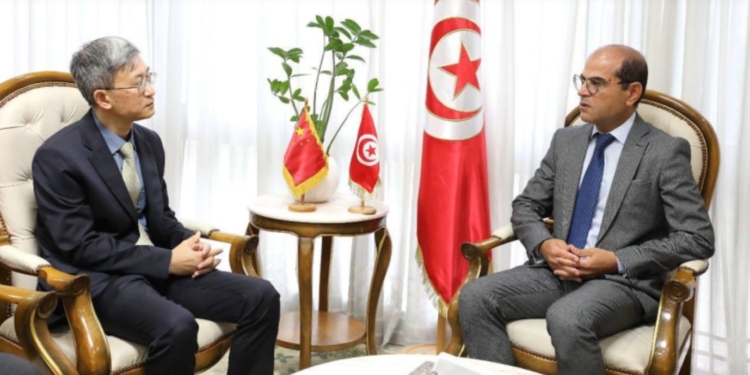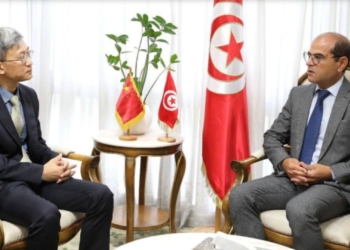The Minister of Equipment and Housing, Salah Zouari, received this Saturday, October 18, 2025, the ambassador of the People’s Republic of China in Tunisia, Wan Li. The meeting, held at the ministry’s headquarters, was entirely devoted to the critical environmental situation in Gabès, and more precisely to the rehabilitation of the production units of the chemical complex located in the area of Chott Essalem.
The Gabès chemical complex, an industrial heart but also a source of serious nuisance for the region, has for years been at the center of criticism due to polluting emissions, gas leaks and the dumping of phosphogypsum at sea. This site, a symbol of industrialization but also of environmental abandonment, has caused a deterioration of marine ecosystems, the air and the health of residents.
Faced with the growing anger of local populations and the multiplication of protests, the State found itself forced to accelerate the search for lasting solutions. It is within this framework that the use of Chinese expertise falls.
Beijing, key partner for depollution?
According to the ministry’s press release, discussions focused on the possibility of involving Chinese companies in the modernization of the industrial facilities of the Tunisian Chemical Group (GCT), particularly in terms of the treatment of toxic emissions, gas filtration and industrial waste management.
The Chinese side, already present in Tunisia through infrastructure projects (highways, hospitals, bridges), could bring advanced technologies in industrial pollution control – an area in which it has solid experience after having itself faced similar pollution crises.
The challenge is twofold: restoring the quality of life of a region that has long been marginalized and restoring credibility to the Tunisian Chemical Group, a strategic player for the national economy but weakened by years of controversy.
If cooperation with China is confirmed, it could be one of the most significant environmental projects of the decade. However, many questions remain unanswered:
- What funding?
- What guarantees for local populations?
- What implementation schedule?
Read also





